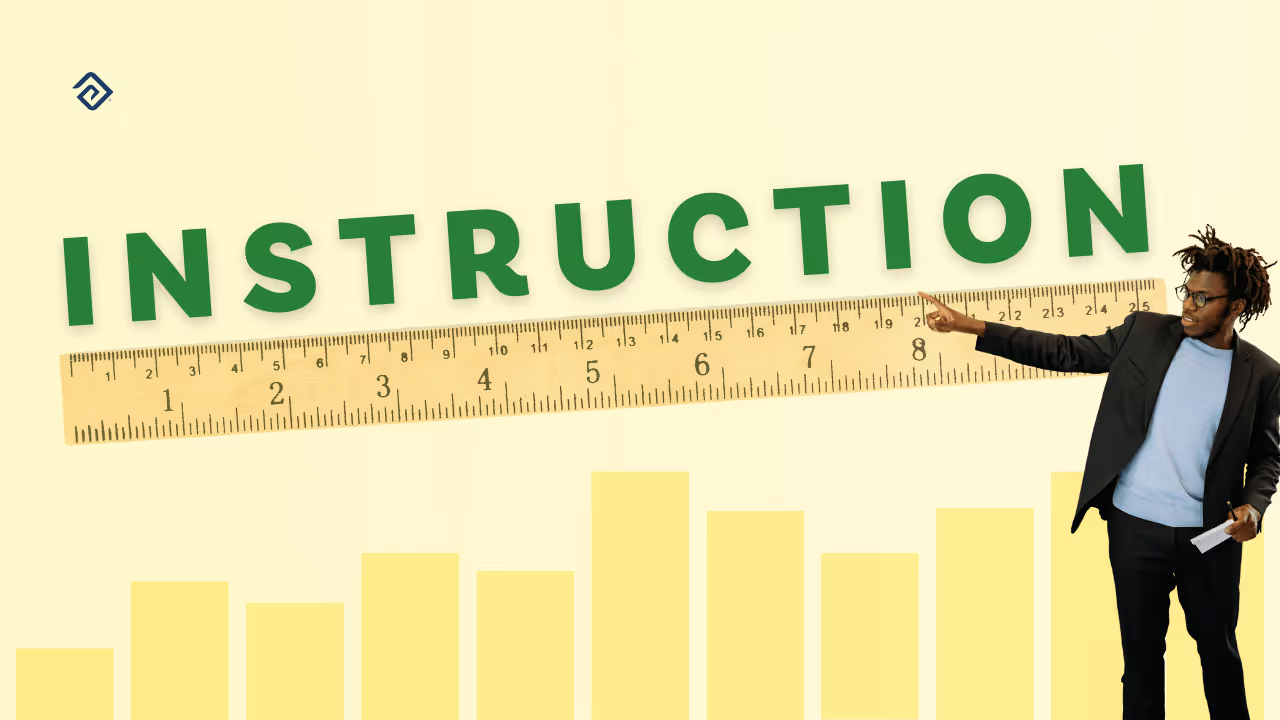Texas School Counselor Support: Meeting the Needs of Today’s High School Students
A Texas school counselor is a certified professional who provides academic, career, and personal guidance to high school students. The role of a school counselor goes beyond scheduling classes or handing out college brochures.
School counselors work directly with students, teachers, and families to identify needs early and remove barriers to progress. They also help students stay on a meaningful path, such as passing a core class, managing a mental health concern, or applying to a trade program or university.
As demands on high schools continue to grow, school counselors have become critical to a school’s ability to respond to students in real time. Texas has developed a statewide counseling model that gives structure to this work, but it is how counselors apply that model that makes the difference.

What the Texas Counseling Model Covers
Texas follows a state-endorsed framework known as the Texas Model for Comprehensive School Counseling Programs. This model breaks down the counselor’s work into four focus areas.
- Guidance Curriculum: Structured lessons that develop academic, career, and personal skills.
- Responsive Services: Direct support for students facing immediate concerns or crises.
- Individual Planning: One-on-one guidance to help students set and reach academic or career goals.
- System Support: Coordination, planning, and collaboration that sustain the counseling program.
To effectively support students within these four domains, it’s essential that counselors track their interactions and maintain detailed activity records. Keeping documentation of previous sessions enables counselors to:
- Reference prior conversations and student progress
- Offer consistent, informed guidance over time
- Identify next steps for ongoing support
- Provide clear documentation if called upon for administrative or compliance purposes
By consistently aligning their work to the Texas Model and documenting their support, counselors can ensure they are maximizing their impact and maintaining a comprehensive, accountable program.
The following are key areas where school counselors work directly with high school students to support academic growth, career readiness, personal development, and more.
Academic Support Services
Academic challenges are common among high school students, and if not addressed early, they can lead to long-term setbacks in performance and confidence. The school counselor serves as a support system that helps students build the habits they need to stay on track without replacing the teacher’s role.
Monitoring Student Progress
In addition to tracking grades and GPA trends, counselors regularly monitor attendance patterns, standardized test scores, and teacher and parent feedback. This helps them spot potential issues before they escalate.
For example, if a sophomore drops from a B average to failing two classes, their academic struggles may be related to underlying problems such as family stress or bullying.

Providing Targeted Interventions
For students who face difficulties, a counselor can:
- Meet one-on-one to discuss barriers
- Help create study or time management plans
- Connect students with tutoring or after-school programs
- Work with teachers to adjust assignments
- Involve families in developing a support plan
Supporting Advanced Learners
Counselors also help high-achieving students take on academic challenges by guiding them toward honors or AP classes, dual credit courses, enrichment programs, or academic competitions.
For instance, a counselor might suggest that a top-performing ninth-grade biology student enter a science fair or apply for a weekend lab program at a local postsecondary institution or sponsoring technology company.
Personal and Social Development
School counselors help students tackle personal and social challenges by guiding them to develop self-awareness, emotional intelligence, and healthy relationship skills, all of which are important for success both in school and beyond.
Counselors address social issues such as bullying, peer pressure, and family challenges through individual or group counseling sessions. They also work with students to help them learn strategies for managing stress and developing resilience.
Areas of support include:
- Helping students develop coping strategies for emotional challenges
- Leading programs on topics such as healthy relationships and conflict resolution
- Supporting students in handling peer pressure and addressing bullying
A counselor might, for instance, meet with a student dealing with anxiety and offer coping strategies. They may also recommend or even connect students to further mental health resources if needed.
College and Career Readiness
School counselors help students plan for life after high school by guiding them through college and career exploration, application processes, and decision-making. In addition to providing resources and strategies to support academic and career goals, counselors also help students select courses and programs of study that align with their long-term aspirations—whether that’s college, technical training, military service, or entering the workforce.
Exploring College Options
For students considering college, counselors assist in researching schools and understanding admission requirements. They help students compare academic programs, campus environments, and locations to find a strong personal and academic fit.
Career Exploration and Course Alignment
For students interested in entering the workforce directly or pursuing technical programs, counselors help identify career interests and recommend related endorsements, programs of study, and elective courses that support those goals. They may:
- Use assessments to identify strengths and interests
- Discuss potential career paths
- Connect students with internship or job shadowing opportunities
- Ensure that selected coursework aligns with a chosen pathway to provide relevant preparation and credentials
Application and Financial Aid Support
Counselors also support students with the application process, including:
- Completing college or technical school applications
- Searching for scholarships and financial aid
- Writing personal statements and essays
A counselor might work with a senior who is still unsure about their future and use that opportunity to help them evaluate both their academic record and career goals—then suggest courses or postsecondary options that align with their strengths and aspirations.

Crisis Intervention and Support
When students experience personal, academic, or family-related issues, school counselors offer immediate support and connect students with appropriate resources. Trained in crisis management, counselors ensure that students are not left to face these challenges alone.
Depending on the situation, counselors may create safe spaces for students to process emotions. They might also collaborate with other professionals, such as social workers, to ensure students receive the care they need. If necessary, they can recommend adjusting course workloads to help students manage stress.
For instance, if a student experiences a family loss, the counselor might provide grief counseling and work with the student to adjust their schedule. This helps the student receive the emotional support they need during such a challenging time.
Supporting Students With Special Needs
School counselors assist students with disabilities or special needs by ensuring they receive the necessary academic, social, and emotional support. They collaborate with special education teachers, attend IEP meetings, and help advocate for the accommodations students need to succeed.
This kind of support might include:
- Helping students create personalized learning plans
- Talking with students about emotional or social struggles
- Organizing peer groups that promote inclusivity
Parental and Community Involvement
The role of school counselors extends beyond the students to include families and the wider community. Counselors help build strong partnerships between home and school, ensuring that families are actively involved in their child’s academic and personal development.
To support this, counselors might organize workshops on academic success, college planning, or mental health. They also connect families with local community resources, such as tutoring or counseling services, and encourage steady communication between home and school to promote student well-being.
A real-life scenario might involve a counselor helping a parent or guardian create a support plan for a student struggling with attendance. The counselor could then connect the family to local resources, such as after-school tutoring or mentorship programs.
Maximize the Impact of School Counseling Services With Pathways
Texas school counselors support students through academic, personal, and social challenges. They help ensure students are ready for the next step and equipped with the life skills needed for success after high school.
To further strengthen the impact of school counseling services, high schools can benefit from Pathways by Education Advanced. Pathways offers a range of tools for college and career readiness, targeted interventions, and personalized support that empower counselors to help students succeed. High schools looking to improve their counseling programs should consider integrating Pathways to better meet the needs of their students.
If your school is exploring ways to enhance the student experience, consider how streamlining operations can make a difference. By reducing time spent on outdated, manual administrative tasks, your staff can focus more on teaching and supporting students. Education Advanced provides a comprehensive suite of tools designed to modernize school workflows and free educators from their desks.
- Evaluation: A solution for documenting every step of the staff evaluation process, including walk-throughs, self-evaluations, supporting evidence, reporting, and performance analytics.
- Pathways: A graduation tracking tool that enables administrators and counselors to create, track, and analyze graduation pathways, ensuring secondary students stay on track to graduate.
- TestHound: Our test accommodation software helps schools coordinate thousands of students across all state and local K-12 assessments while considering various accommodations, such as for reading disabilities, physical disabilities, and translations.
More Great Content
We know you'll love





